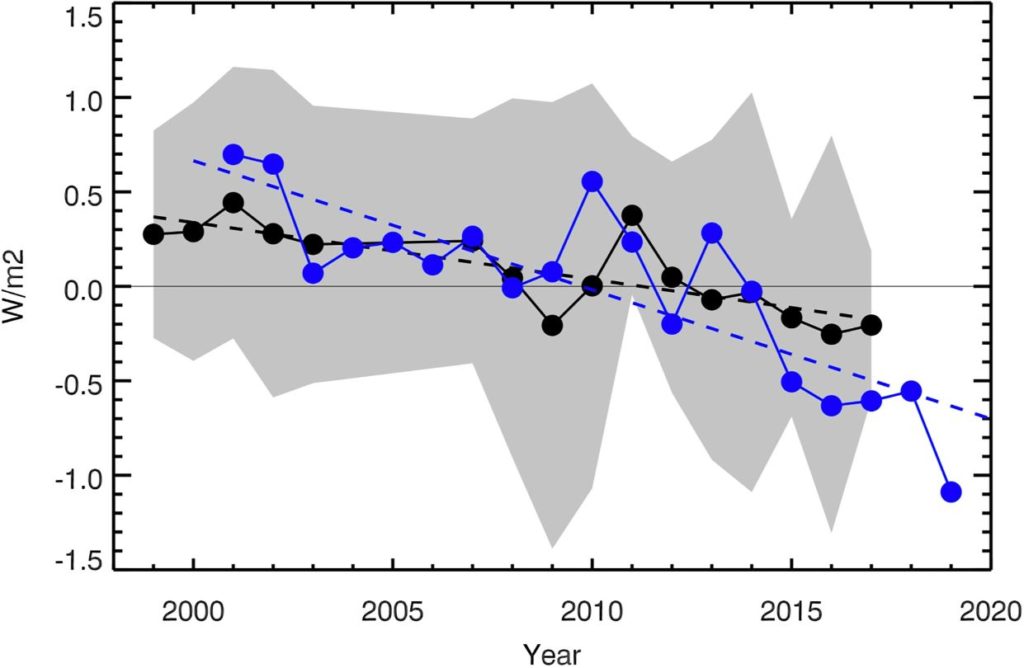
[ad_1]
New research using decades of earthshine measurements suggests that ocean warming has caused a significant drop in the Earth’s brightness. The satellite measurements were also considered to find a substantial drop in Earth’s reflectance, or albedo, over the past two decades.
Earthshine or albedo is a visible glow that lightens the unlit part of the Moon due to the Sun’s light reflects off the Earth’s surface and back onto the Moon. It is a diffuse reflection of sunlight from the Earth, whose albedo can be measured. Earth reflects about 30% of the sunlight that shines on it.
The new study reported an equivalent of 0.5% decrease in the Earth’s reflectance. It reflects about half a watt less light per square meter than it was 20 years ago.
The notable fact is- most of the drop occurring in the last three years of earthshine data.
Philip Goode, a researcher at the New Jersey Institute of Technology and the lead author of the new study, said, “The albedo drop was such a surprise to us when we analyzed the last three years of data after 17 years of nearly flat albedo.”

For the study, scientists referred to the earthshine data from 1998 to 2017 gathered by the Big Bear Solar Observatory in Southern California. When the latest data were added to the previous years, the dimming trend became clear.
However, the researchers observed changes in Earth’s albedo did not correlate with periodic changes in the Sun’s brightness. It indicates changes in Earth’s reflectiveness are caused by something on the Earth.
More importantly, satellite measurements made as part of NASA’s CERES project suggest a reduction of bright, reflective low-lying clouds over the eastern Pacific Ocean in the most recent years. In that same region, off the west coasts of North and South America, sea surface temperatures have been recorded due to the Pacific Decadal Oscillation.
Edward Schwieterman, a planetary scientist at the University of California at Riverside, said, “It’s quite concerning. For some time, many scientists had hoped that a warmer Earth might lead to more clouds and higher albedo, which would help moderate warming and balance the climate system. But, this shows the opposite is true.”
Journal Reference:
- P. R. Goode et al. Earth’s Albedo 1998–2017 as Measured From Earthshine. DOI: 10.1029/2021GL094888
[ad_2]
Source link